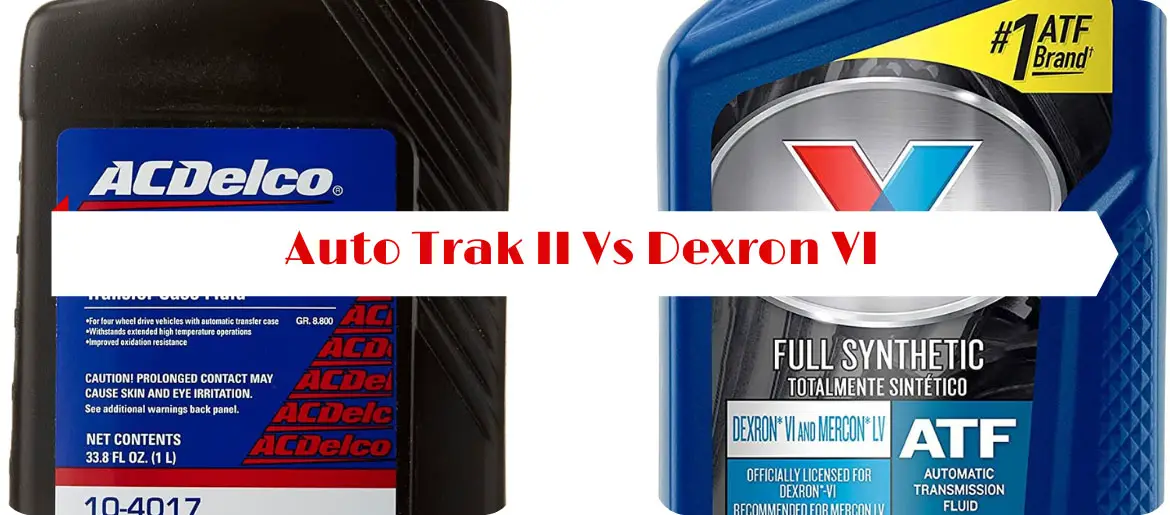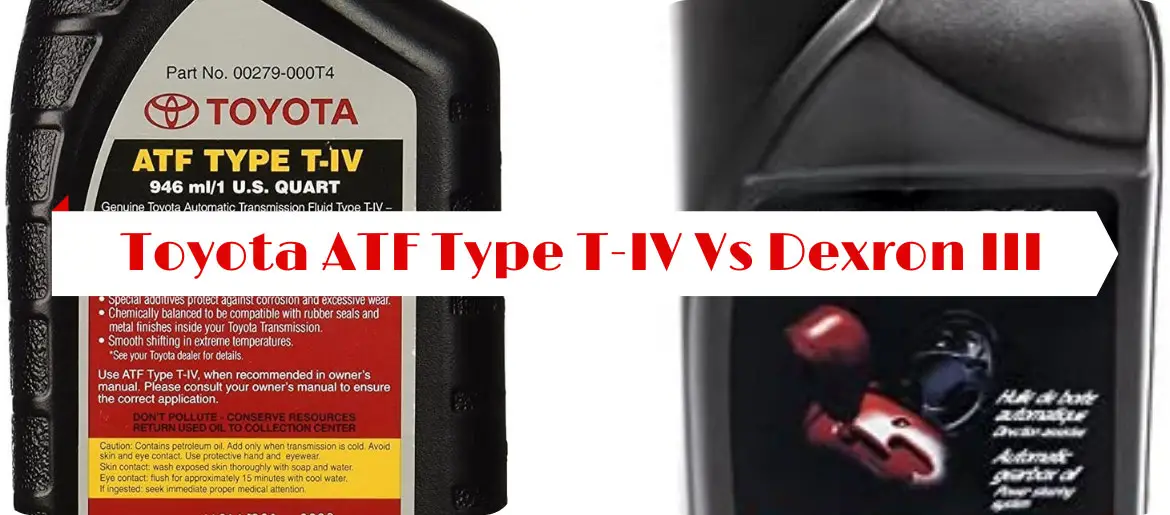Synthetic Transmission Fluid Vs Regular
The main difference between synthetic transmission fluid and regular transmission fluid is their composition and performance.
Synthetic transmission fluid is chemically engineered for higher performance, providing better lubrication, longer fluid life, and enhanced resistance to heat and oxidation. It is ideal for high-stress conditions, extreme temperatures, and long intervals between changes.
Regular transmission fluid (often called conventional or mineral-based) is derived from crude oil and may not offer the same high-temperature stability or long-lasting protection as synthetic fluids. It typically requires more frequent changes and may be less effective in extreme conditions.

In this guide, I’ll discuss synthetic transmission fluid vs regular transmission fluid and other factors associated with it.
How Does Transmission Fluid Work?
The use of transmission fluid is essential in order to keep the car running smoothly by lubricating the metal parts present in the gearbox of a car. Cars either come with a manual transmission or an automatic transmission, and you have to choose the transmission fluid accordingly.
Transmission fluids typically work with the clutch and the shifting gears of a car. It allows the clutch to work smoothly and prevents breakdowns caused by overheating by cooling the metal parts down. Not only that, but this allows the shifting gears of a car to work efficiently without causing any wear or tear to the parts of the vehicle.
Types Of Transmission Fluids
Transmission fluids are typically available in two types: manual and automatic. Automatic transmission fluid is only used in cars that come with an automatic transmission, while the manual transmission fluid is used in vehicles with manual transmission.
Today, not many cars come with a manual transmission, and thus, the availability of manual transmission fluid is not much. If you take a look at the recent models of manual cars, then you can see that the majority of manual transmissions work perfectly with automatic transmission fluid.
Comparing Synthetic Transmission Fluid Vs Regular
When it comes to transmission fluids, both synthetic transmission fluid and regular transmission fluid are popular choices. Regular transmission fluid is manufactured using crude oil and often contains a decent number of impurities, while synthetic transmission fluid is manufactured using a wide range of chemicals. Other than the manufacture, there are quite a few noticeable differences between these two types. These are:
Resistance To Oxidation
Transmission fluid works to improve the fuel efficiency of a car and also provides resistance to oxidation in the engine of a car. While both synthetic and regular transmission fluid provides this resistance, synthetic transmission fluid works more efficiently compared to regular transmission fluid. The reason behind this is that the synthetic fluid can meet the requirements and standards of a gearbox more properly.
Shifting Gears
As discussed above, the transmission fluids allow the driver to shift the gears smoothly and prevent damage caused by wear and tear. Due to the chemical composition of synthetic, it provides better lubrication to the gears, bearings, and other parts connected to the shifting gears than the regular transmission fluid.
Time And Money
If you use regular transmission fluid, then you will have to get it replaced once in every 30,000 to 60,000 miles of travel. On the other hand, with synthetic transmission fluid, the replacement of fluid has to be done within 60,000 to 100,000 miles of travel. The difference in miles between these two fluids is quite great.

This means that with synthetic fluid, you do not have to get the transmission fluid replaced as often as regular fluid. This will not only help you to save money, but it will also save you the time and hassle of traveling to the garage.
System Overheating
One of the major reasons behind the use of transmission fluid is that it cools down the metal gears, bearings, and other parts of the vehicle. These parts often overheat due to the lack of transmission fluid and can result in the breakdown of the clutch.
If you talk about which transmission fluid between regular and synthetic works best for the problem of overheating, then the answer will definitely be synthetic transmission fluid.
As you know, the composition of synthetic fluid is quite different compared to that of regular fluid, and this chemical composition allows the fluid to cool down the system more effectively over a wide range of temperatures.
Rust And Corrosion
The metal parts of a vehicle often end up getting rusted or corroded due to the presence of several chemicals. However, studies show that regular transmission fluids do more harm than good in this case as they often increase the chance of corrosion.
In cases like these, synthetic transmission fluid is a better option as it typically reduces the risk of corrosion and rust and also increases the longevity of the metal parts, gears, and so on.
Synthetic Transmission Fluid Vs Regular: Which Is Better?
The main difference between synthetic transmission fluid and regular is that, synthetic ATF is the upgraded version of automatic transmission fluid that does not cause leaks. On the other hand, regular ATF may have a thicker viscosity in cooler temperatures and also may cause leaks.
As you noticed in the guide above, both synthetic and regular transmission fluids are easily available in the world of cars and transmissions. However, if you consider the comparison between synthetic transmission fluid vs regular, you will see that the synthetic transmission fluid is far more beneficial and efficient than the regular fluid.
This is why the majority of car experts and manufacturers prefer the use of synthetic transmission fluid in both automatic and manual transmissions. If you ask for my personal recommendation, then I’ll also recommend the use of synthetic transmission fluid.
People Also Ask
Is synthetic transmission fluid better than regular?
The answer to this question is not as simple as a yes or no. It depends on a variety of factors, such as the type of transmission, the operating conditions, and the manufacturer’s recommendations.
In general, synthetic transmission fluid provides superior protection for transmission components. It has higher thermal stability and is less likely to break down under high temperatures. Synthetic transmission fluid also has a higher viscosity index, which means it flows more easily at low temperatures. This can improve the shift quality of your transmission, especially in cold weather.
Another advantage of synthetic transmission fluid is that it can last longer than regular transmission fluid. This is because it is less likely to break down and is more resistant to degradation.
What happens when you mix synthetic transmission fluid with regular transmission fluid?
If you mix synthetic transmission fluid with regular, you may end up with a mixture that does not provide the best protection for your car transmission. The two fluids have different properties and mixing them can result in a sub-optimal mixture.
How long is synthetic transmission fluid Good For?
Synthetic transmission fluid is designed to last longer than conventional transmission fluid. In general, modern automatic synthetic transmission fluid can last 60,000 to 80,000 miles.
What type of transmission fluid should I use?
There are many types of transmission fluid, but the most common are Dexron III, Mercon, and Type F. Dexron III is the most common type of transmission fluid, and it is compatible with most vehicles. Mercon is a type of transmission fluid that is designed for use in Ford vehicles. Type F transmission fluid is designed for use in Chrysler vehicles.
When choosing a transmission fluid, it is important to consult your vehicle’s owner’s manual to ensure compatibility.



